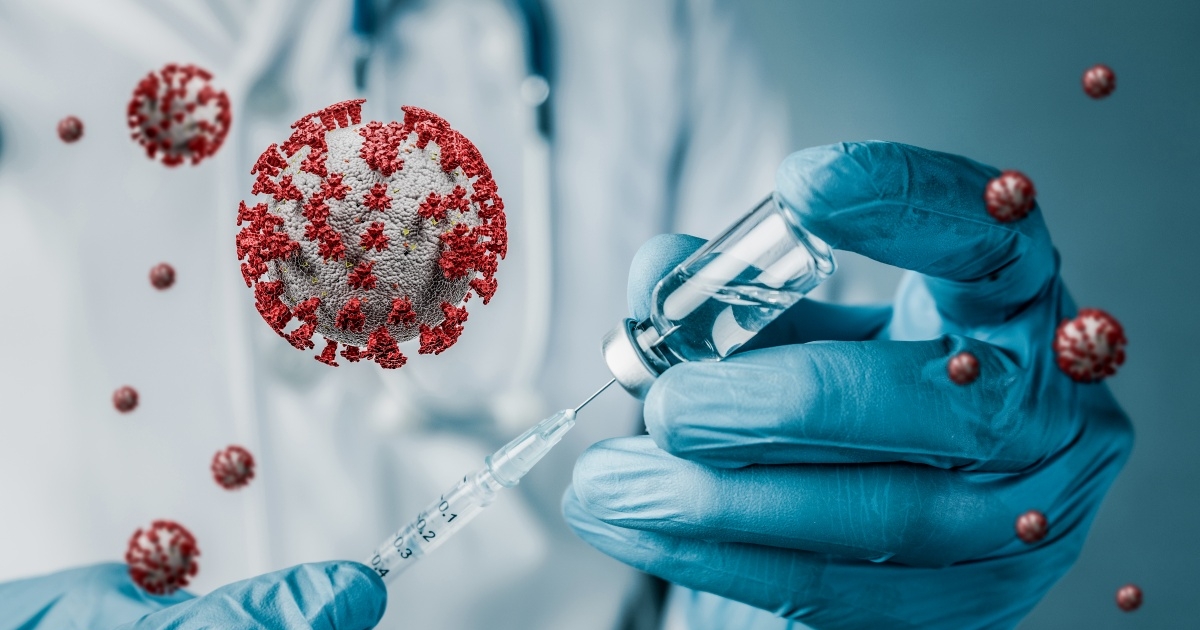[Naidheachdan New Tang Dynasty, àm Beijing, 25 Samhain, 2024]After learning that he was suffering frombreast cancerAfter that, CroatiaA virusScientist Beata Halassy decided to grow her own virus to fight the disease, a move that went against the grain of medicine but seemed to work.
Halasi’s dangerous act of self-medication at the University of Zagreb sparked a mix of controversy and respect among her colleagues, according to a November 8 news report in Nature.
Halasi began researching tumor spread after learning in 2020 that she still had a third recurrence after undergoing a mastectomy.A virusOncolytic virotherapy (OVT), as the name suggests, uses viruses to induceimmune responseto fight disease. Although this is not unique and has been approved for early stage metastatic melanoma, globally there is no government approval.breast cancerOVT treatment, which made the whole experiment dangerous for Halassi, her doctors and colleagues, and ultimately the academic journal in which her story would be told.
The pathologist asked a colleague to inject her with a drug commonly used in childhood vaccinesthe measles(measles) and vesicular stomatitis virus, both of which are known to affect the types of cells it wants to destroy and stimulate the immune response it needs. As the two-month trial progressed, the tumor moved and separated from her muscles and skin, making surgical removal easier. When the tumors were removed after removal, Halasi and her colleagues found that their risk paid off.
“The immune response is definitely stimulated,” the pathologist said.
This all happened in 2020, which means that Halasi has now been cancer free for 4 years, but she has had trouble sharing her research with the world.
A research paper raises controversy
After writing a thesis proposal about her experience and submitting it to a journal, the researcher was repeatedly rejected. She noted that most editors were reluctant to talk to the paper because they were concerned about the ethics of self-testing, particularly the fear that others with less experience might try similar practices. to him, with disastrous results.
In fact, Jacob Sherkow, a law and medicine researcher at the University of Illinois at Urbana-Champaign who was not involved in Halassi’s paper, told Nature that academic journals need to be more proactive in raising awareness. on the conflicting issues of achieving a balance between gaining knowledge through self-knowledge. testing and not promoting such testing as a first-choice treatment.
As an expert on self-testing techniques in the early days of the COVID-19 pandemic, Scherko said he believed Halassi’s study was “certainly ethical, but not a clear case.”
Finally, Hallasi’s paper found an opportunity to be published in the journal “Vaccine”.
Despite the difficulties in publication, the psychologist is proud of her experiments and the people who published them.
“Only a brave editor would publish this study,” Hallasi told Nature.
(Reprinted from The Epoch Times/Editor: Ye Ping)
URL of this article: https://www.ntdtv.com/b5/2024/11/25/a103932462.html
2024-11-25 17:09:00
#Scientists #successfully #cure #breast #cancer #injecting #viruses #bodies #Immune #response
Considering the potential risks and lack of established protocols associated with self-treatment, is Dr. Halassy’s decision ethically justifiable from a bioethics standpoint?
## Interview: Self-Treatment with Viruses: A Leap of Faith or Reckless Experimentation?
**Welcome to World Today News. Today we’ll delve into a controversial and potentially groundbreaking story of a breast cancer scientist who treated herself with a DIY virus therapy.**
**Joining us are Dr. Emily Carter, an oncologist and bioethics expert at the University Medical Center, and Dr. James Lee, a virologist specializing in oncolytic virotherapy at the National Institute of Health.**
**I’d like to start with the central theme: Dr. Halassy’s decision to self-administer a viral therapy. Dr. Carter, from an ethical standpoint, what are your thoughts on this case?**
* **Ethical Considerations:** Considering the potential risks and lack of established protocols, is self-treatment morally justifiable? Does it violate principles of informed consent and patient autonomy?
**Dr. Lee, from a scientific perspective, could you elaborate on oncolytic virotherapy, its potential benefits, and the risks involved?**
* **Oncolytic Virotherapy:** What are the mechanisms behind this therapy? How effective is it for treating different types of cancer? What are the potential side effects and long-term consequences?
**The article mentions Halassy’s collaboration with a colleague to administer the virus. This raises questions about the legalities and professional responsibility.**
* **Legal and Professional Boundaries:** Should medical professionals assist with self-treatment protocols, especially if they are not endorsed by the medical community? What are the potential legal ramifications and professional repercussions for both parties involved?
**Dr. Halassy faced many obstacles in getting her research published. She endured repeated rejections due to ethical concerns surrounding her methodology.**
* **Scientific Publication:** Is it acceptable for researchers to publish studies based on self-experimentation? What role should peer review play in establishing the validity and ethical soundness of such research?
**Dr. Halassy’s case sparks a complex debate about individual autonomy, scientific ethics, and the boundaries of medical practice. Both Dr. Carter and Dr. Lee have provided insightful perspectives on this unprecedented case, leaving us with important questions about the future of personalized medicine and the ethical considerations surrounding self-treatment.**
**Thank you both for joining us today. This has been a thought-provoking discussion, highlighting the complexities and ethical dilemmas associated with medical advancements and patient agency.**
**For more information on breast cancer research and treatment options, please visit the websites of the National Cancer Institute and the American Cancer Society.**


